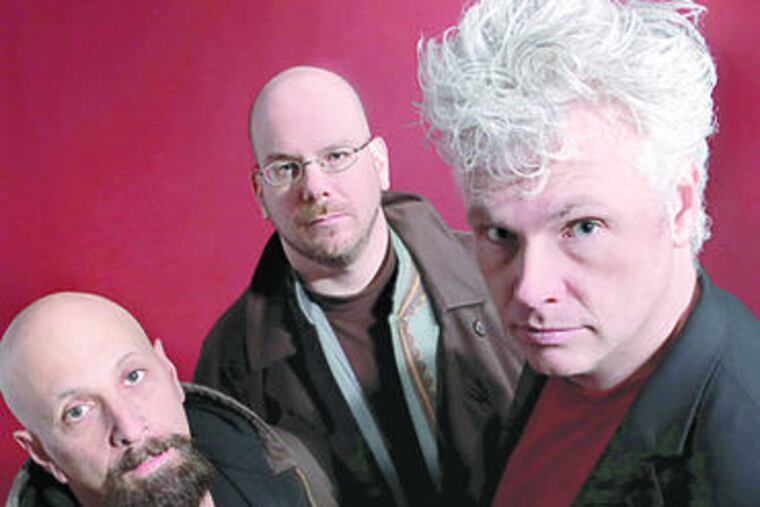The professors of rock, faithfully celebrating Milton
Were he still with us, Puritan poet and Paradise Lost author John Milton would have turned 400 this month. So, naturally, Daniel Robinson and his bandmates are throwing a party.

Were he still with us, Puritan poet and
Paradise Lost
author John Milton would have turned 400 this month. So, naturally, Daniel Robinson and his bandmates are throwing a party.
"When we named the band after him," says the front man for Milton & the Devils Party, who will play upstairs at World Cafe Live on Saturday in support of their sophomore CD of stinging jangle-pop,
How Wicked We've Become
, "we committed ourselves to celebrating the milestones in his life."
And why, pray tell, would you name a rock band after English literature's premier blind blank versifier? Well, if you were an English professor at Widener University - as both the bass-playing Robinson and his guitarist bandmate Mark Graybill are - it would make perfect sense.
Because poet and painter William Blake, noting that Satan is depicted as more full-blooded and sympathetic in
Paradise
Lost
than God, wrote that Milton is "of the devils party without knowing it."
"We were trying to make light of the fact that we were professors, and if we picked the most pompous name, people might actually get the joke," says Robinson, 39, a Roanoke, Va., native who lives in Havertown with his wife and daughter. "It hasn't always worked out that way."
Instead, a glance at the creepy flower on the cover of
How Wicked We've Become
, recorded with ace producer Brian McTear, might lead you to expect a satanic metal band. And, indeed, the album's tuneful songs, decorated, as Robinson puts it, with Graybill's "intricate, melodic, arpeggiated guitar stuff," do have a fiendish element.
That's because Robinson, taking after Ray Davies, writes in-character songs about unsavory people. "I try to inhabit these personalities," he says, from his Widener office. "Sometimes they're losers and sometimes they're jerks. I deliberately tried to write songs about people who were not nice. They're not goody-goodies."
For Robinson, a specialist in British romantic poetry - and a believer that Morrissey's 2004 "Irish Blood, English Heart" is "the best song of this century" - the beginnings of rock can be found in English 101.
"This sounds kind of lofty, so bear with me," he asks. "But I really think there's an element of rock that goes all the way back to Milton. . . . It's the antihero. The rebel. The reason Shelley thought Satan was the hero of
Paradise Lost
."
The link to the modern anti-hero is Lord Byron, the 19th- century Brit often called "the first rock star." And there are stops along the way, Robinson says, with "Ahab and Moby Dick, Rhett Butler in
Gone With the Wind
, and right into
Rebel Without a Cause
and rock-and-roll."
That backstory informs what Robinson, Graybill and drummer Bob Falgie do, but is by no means necessary to enjoying their music, more of which is due in 2009, with a McTear-produced album that's more '70s-influenced than
Wicked
.
"I love poetry," Robinson says. "It's everything to me. But I think of songwriting as a separate thing. I don't think lyrics should be poetry. I think lyrics should be connected to the music. I write pop-rock songs. That's what I do."